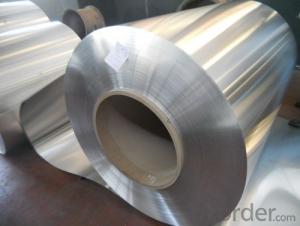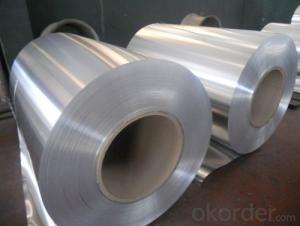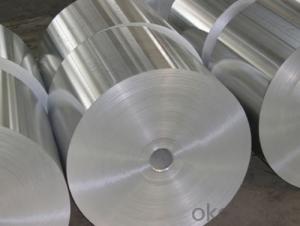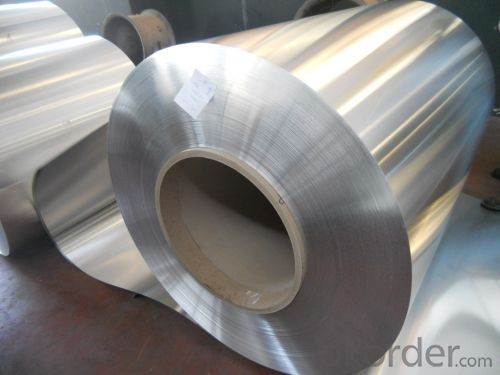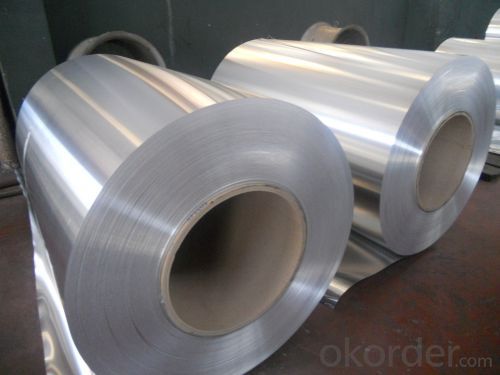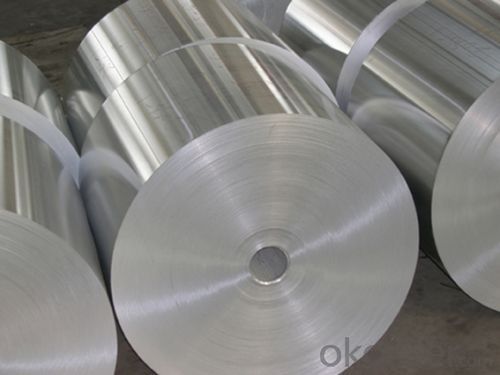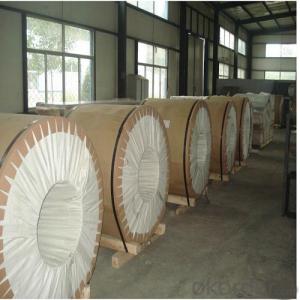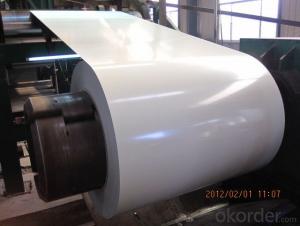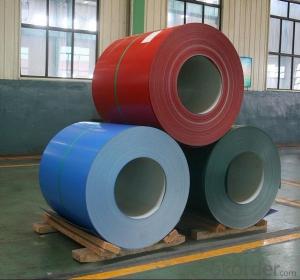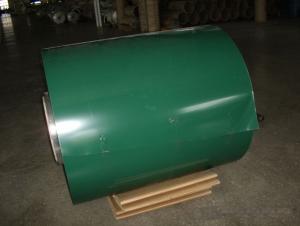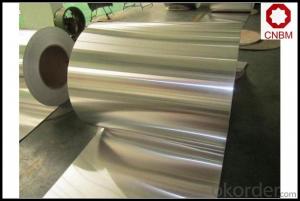High Quality Coil Coating Aluminum Coil for Ceiling - Building Material at Good Price
- Loading Port:
- Shanghai
- Payment Terms:
- TT OR LC
- Min Order Qty:
- 10 m.t.
- Supply Capability:
- 30000 m.t./month
OKorder Service Pledge
OKorder Financial Service
You Might Also Like
Packaging & Delivery
Packaging Details: | Standard export packing or following customer's demand |
Delivery Detail: | Within 10-20days or according to the order quantity |
High Quality and Factory Price Aluminum Coil
Specifications
Grade
| 1000 Series: 1050 1060 1070 1100 1200 1235 etc. 3000 Series: 3003 3004 3005 3104 3105 3A21 etc. 5000 Series: 5005 5052 5083 5086 5154 5182 5251 5754 etc. 6000 Series: 6061 6063 6082 6A02 etc. 8000 Series: 8006 8011 8079 etc. |
Thickness | 0.05~10mm |
Width | <1600mm< span=""> |
Color | Metallic, Solid, RAL or by customer requirements |
Coating paint: | PVDF(Polyvinylidene Fluoride), PE(Polyester ) |
Coating thickness | as per customer’s request |
Gloss | 10-90%(EN ISO-2813:1994) |
Total coating thick | Polyester18~27micron(EN ISO-2360:1995) PVDF27 ~35micron(EN ISO-2360:1995) |
Coating hardness | 2H |
Protective film | PVC film, Colorless transparent or White-black |
Adhesion | 5B (EN ISO-2409:1994) |
Impact resistance | No cracking and peeling (A.S.T.M D2794-1993) |
Flexibility (T-bend) | 0T- 2T |
Temper | H16, H18, H24, H26, H26 |
Certification | ISO9001:2000, CE, SGS |
Coil's standard diameter | 1100mm |
Inner Diameter | 405mm/505mm |
Coil's standard weight | 2000kgs |
Payment | L/C ,T/T |
Parameter
Product | Alloy | Temper | Thickness | Width | I.D(mm) | Application |
Aluminum Coil/Strip | 1050,1060,1070, 1100,1200,1235, 1145,3003,304, 3105,3A21, 8011 | O H12 H14 H16 H18 H22 H24 H26 | 0.2-8mm | 50-2400mm | 75,150 200,300 400,505 (as customers's request) | construction,decoration, automobile,electronic, machinery,boat construction, aeronatics&astronautics, cookware,packing etc. |
FAQ
1. How can I get some samples?
We are honored to offer you samples. New clients are expected to pay for the courier cost. The samples are free for you.
2 Do you have any certificates?
Our products passed inspection of SGS, FDA, and CE Quality is priority! Every worker keeps the QC from the very beginning to the very end, Quality control department especially responsible for quality checking in each process.
3 Can your factory print or emboss my logo on the goods?
Yes, we can print or emboss the logo on the goods or their packing box.
4 What information should I let you know if I want to get a quotation?
1) The specification of products (length x width x thickness);
2) The temper and alloy.
3) The final product you will use to be made
4 It will be better if you can show us the pictures or design sketch. Samples will be best for clarifying. If not, we will recommend relevant products with details for reference.We usually produce goods based on customers
Samples or based on customers’ picture, logo, sizes etc.
Our Services
1. Reasonable production arrangement to make delivery very fast;
2. We are able to provide leading tolerances, metallurgical assistance, quick and reliable delivery, samples for new products, etc.
3. We have the strong capability to meet your particular requirement for the products.
4.To guarantee the quality of the products we can meet most of the standards all over the world.

Photos
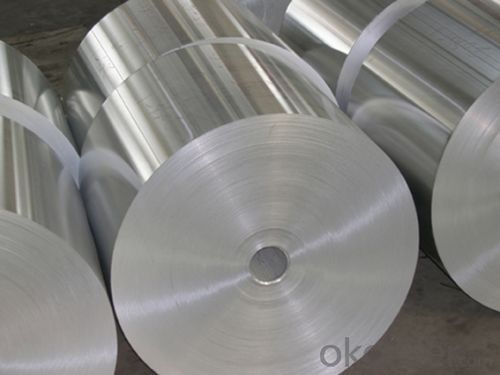
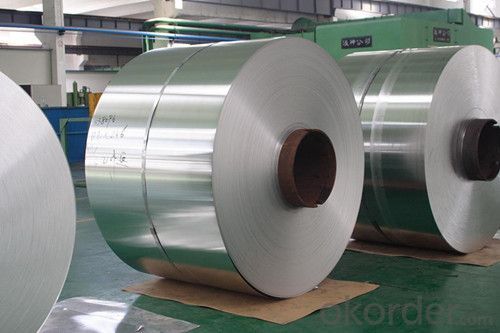
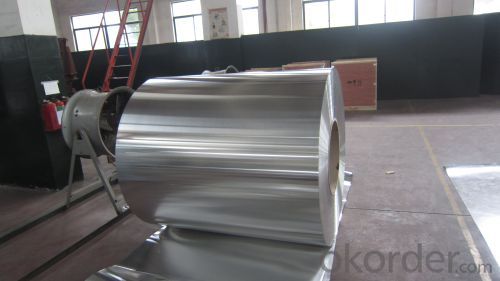
- Q: Are aluminum coils suitable for chemical processing applications?
- Yes, aluminum coils are suitable for chemical processing applications. Aluminum is known for its excellent corrosion resistance and high thermal conductivity, making it an ideal choice for various chemical processes. It can withstand different chemicals and acids, and its lightweight nature allows for easy handling and installation. Additionally, aluminum coils provide good heat transfer and can be easily formed into various shapes, making them versatile for different chemical processing requirements.
- Q: why is aluminum oxide used more frequently than silicon carbide as an abrasive?What r the different types of tool feed mechanism in USM process.
- Aluminum oxide and silicon carbide are used to grind two completely different sets of materials. Steels and other ferrous alloys are best ground with an aluminum oxide wheel, and the majority of grinding tasks are grinding ferrous alloys. At home, tools are made of steel, and so home bench grinders come with Al2O3 wheels. The same with handheld angle grinders - most welding is done with ferrous alloys. For aluminum and carbides, a silicon carbide wheel will yield better results.
- Q: This question is asking about the potential negative effects or hazards associated with the use of aluminum coils.
- <p>The use of aluminum coils can pose certain risks and dangers, primarily due to their high thermal conductivity and reactivity. When used in cooking or heating applications, aluminum coils can cause uneven heat distribution, which may lead to burning or melting of food. Additionally, aluminum can react with acidic or alkaline foods, potentially leaching aluminum into the food and causing health concerns such as neurological disorders and bone diseases. Moreover, aluminum coils can corrode over time, especially when exposed to moisture or certain chemicals, which can weaken their structure and pose a risk of breakage or injury. It's important to use aluminum coils appropriately and to monitor their condition regularly to minimize these risks.</p>
- Q: How much does it cost to extract aluminium from its raw ore? Also how much does extracted aluminium sell for? I cannot find this anywhere on the internet. I would really appreciate some help.
- The biggest cost is the electricity. This is why most Al smelters are located where electricity is cheap. The price of Al metal depends on exactly what form it is in and what the alloy is. Scrap Al is worth very roughly $0.30 per pound. Fabricated Al alloys for aerospace applications sell for much much more. Ultra high purity Al for semiconductors sells for roughly $40 per kg.
- Q: How are aluminum coils used in the production of HVAC components?
- Aluminum coils are used in the production of HVAC components as they serve as the heat transfer medium. These coils help in the efficient exchange of heat between the refrigerant and the surrounding air, facilitating the cooling or heating process. The aluminum material is lightweight, durable, and has excellent thermal conductivity, making it ideal for this purpose.
- Q: Why there is always impression and indentation on the backup roller of aluminum coil rolling mill with 4 rollers.
- It is either the external or the bearing problem in designing and installing.
- Q: How are aluminum coils processed for further fabrication?
- Various products can be created from aluminum coils by undergoing a series of steps for further fabrication. To begin, the coil is typically uncoiled to separate it into individual sheets or strips, which can be done manually or through automation. Next, the coils are cleaned to eliminate dirt, oil, or other contaminants. This step is crucial to ensure proper adhesion and surface finish in subsequent fabrication processes. The cleaning process may involve chemical treatments, rinsing, or mechanical brushing. Following the cleaning process, the coils often go through a pre-treatment stage, such as chemical conversion coating or anodizing. These treatments enhance the surface properties of the aluminum, providing improved corrosion resistance, better adhesion for coatings, and enhanced paint adhesion. Once the pre-treatment is finished, the coils are prepared for fabrication. This can be accomplished through various techniques, such as cutting, bending, stamping, or roll forming. Cutting can be performed using shearing, sawing, or laser cutting techniques, depending on the desired dimensions and accuracy. Bending and forming are commonly utilized to shape the aluminum coils into desired profiles or structures. This can be achieved through the use of press brakes, roll forming machines, or specialized bending equipment. Stamping is another popular method of fabrication, where the coils are pressed into specific shapes using dies and punches. This technique is commonly employed in the production of automotive parts, household appliances, and electronics. Upon completion of the desired fabrication, the coils may undergo additional surface treatments or coatings to provide protection or enhance their appearance. This can include painting, powder coating, or the application of protective films. In conclusion, aluminum coils undergo a series of steps including uncoiling, surface cleaning, pre-treatment, cutting, bending, stamping, and surface treatments to facilitate further fabrication. These processes enable the transformation of the coils into various products with the desired properties and characteristics.
- Q: Are aluminum coils suitable for architectural applications?
- Yes, aluminum coils are suitable for architectural applications. Aluminum is a highly versatile and durable material that is commonly used in the construction industry for various architectural applications. Aluminum coils offer several advantages for architectural use, including their lightweight nature, corrosion resistance, and ability to be easily formed into desired shapes and sizes. These coils can be used in architectural applications such as roofing, cladding, facades, and gutters, among others. Additionally, aluminum coils can be coated with different finishes, providing a wide range of aesthetic options for architects and designers. Overall, aluminum coils are an excellent choice for architectural applications due to their strength, durability, and flexibility.
- Q: Are aluminum coils suitable for electrical transformer applications?
- Yes, aluminum coils are appropriate for use in electrical transformer applications. Aluminum coils possess several advantages over traditional copper coils when utilized in transformers. To begin with, aluminum is a lightweight metal, making it easier to handle and transport. This is particularly advantageous for large transformers where reducing weight is desired. The lightweight nature of aluminum coils also facilitates easier installation and maintenance. Secondly, aluminum exhibits excellent electrical conductivity, albeit not as conductive as copper. However, aluminum coils can compensate for lower conductivity by employing larger wire sizes or increasing the number of turns. This ensures that the transformer operates efficiently and effectively. Moreover, aluminum has a higher thermal conductivity compared to copper. Consequently, aluminum coils can dissipate heat more efficiently, which is crucial for the proper functioning and longevity of transformers. This increased heat dissipation aids in reducing the transformer's operating temperature, thereby enhancing its overall performance. Furthermore, aluminum serves as a cost-effective alternative to copper. Generally, aluminum is less expensive than copper, making it a more economical option for transformer manufacturers. This cost advantage can be particularly significant in large-scale transformer production. However, it is important to note that there are certain considerations to be mindful of when utilizing aluminum coils in transformer applications. Aluminum coils are more susceptible to oxidation and necessitate proper insulation to prevent corrosion. Additionally, aluminum coils may exhibit slightly higher electrical losses compared to copper coils, although advancements in design and manufacturing techniques have mitigated this concern. In conclusion, aluminum coils are indeed suitable for use in electrical transformer applications. They offer benefits such as lightweight construction, excellent electrical conductivity, superior thermal conductivity, and cost-effectiveness. However, it is crucial to implement proper insulation and preventive measures to address any potential challenges associated with aluminum coils, ensuring optimal performance and durability of the transformers.
- Q: Can aluminum coils be used in chemical processing equipment?
- Yes, aluminum coils can be used in chemical processing equipment. Aluminum is known for its corrosion resistance and high thermal conductivity, making it suitable for various chemical processing applications. However, it is important to consider the specific chemical and operating conditions to ensure compatibility and prevent any potential reactions or damage to the equipment.
Send your message to us
High Quality Coil Coating Aluminum Coil for Ceiling - Building Material at Good Price
- Loading Port:
- Shanghai
- Payment Terms:
- TT OR LC
- Min Order Qty:
- 10 m.t.
- Supply Capability:
- 30000 m.t./month
OKorder Service Pledge
OKorder Financial Service
Similar products
Hot products
Hot Searches
Related keywords
